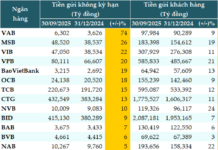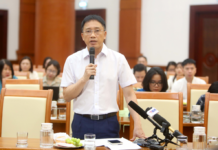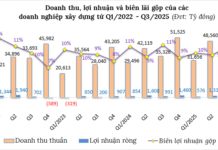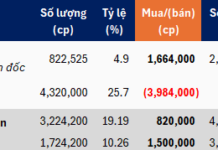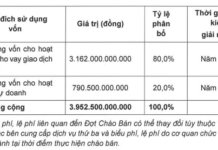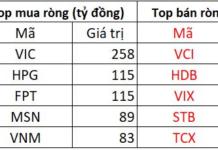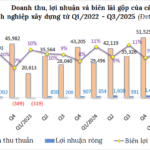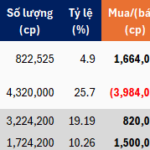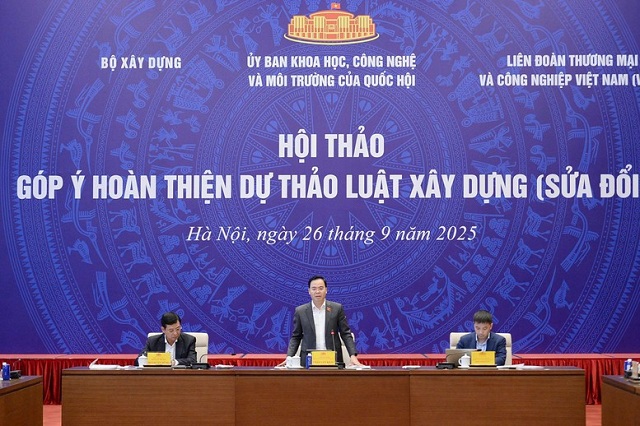
Deputy Chairman of the Committee on Science, Technology, and Environment, Tran Van Khai, delivered the opening remarks. Photo: Construction Newspaper
|
On September 26, the Standing Committee on Science, Technology, and Environment (ST&E) of the National Assembly, in collaboration with the Ministry of Construction and the Vietnam Chamber of Commerce and Industry (VCCI), organized a workshop to gather feedback on the revised draft of the Construction Law.
According to the draft’s presentation, following the absorption of feedback from the Government’s second specialized legislative session in September 2025, the revised Construction Law has been restructured into 8 chapters and 97 articles.
The latest draft amends project classification to establish state management content in construction based on investment forms (public investment, PPP, business investment), ensuring no overlap in regulatory scope and implementation procedures with the Public Investment Law, PPP Law, and Investment Law. It also revises project management modalities and contract management regulations.
Notably, the draft proposes abolishing 3 out of 8 procedural groups compared to the current Construction Law, including approval of construction design implementation after basic design; issuance of construction operation capacity certificates for organizations; recognition of socio-professional organizations eligible to issue construction operation capacity certificates; and elimination of all business conditions for 10 conditional business sectors in construction under the Investment Law.
For remaining administrative procedures, the revised Law simplifies procedures and reduces applicable subjects, with detailed regulations provided in a Decree.
Without Law Revision, Growth Targets Cannot Be Achieved
According to Deputy Chairman of the ST&E Committee Tran Van Khai, the revised Construction Law is a crucial and practical project for citizens and businesses in the construction sector, helping to remove bottlenecks and promote socio-economic development. Therefore, revising the Construction Law is essential to achieve development goals.
He highlighted the reality of multi-layered, complex administrative procedures that prolong project implementation and increase business costs. Additionally, the lack of synchronization among laws causes confusion for investors and businesses. The current Construction Law, enacted in 2014, has become outdated in the context of Industry 4.0, lacking mechanisms to encourage private sector and PPP projects. Traditional approval and acceptance procedures increase costs and delay progress. The application of new technologies like BIM, GIS, and AI in construction remains slow, lacking a comprehensive legal framework.
Particularly, the state apparatus has shifted to a two-tier government model with reorganized administrative units and decentralized authority. This necessitates immediate revision of the Construction Law to avoid local project implementation obstacles.
“Recently, the National Assembly has approved investment in several key projects. Without timely reforms, growth targets cannot be met. Therefore, this Construction Law revision is imperative,” said Mr. Khai.
Shifting from Ex-Ante to Ex-Post Control
Deputy Secretary General and Head of the Legal Department at VCCI, Dau Anh Tuan, praised the draft Law for emphasizing the shift from ex-ante to ex-post control, moving from detailed management to empowering and enhancing autonomy for entities. The draft also demonstrates a strong commitment to reducing administrative procedures, simplifying investment and licensing processes, and facilitating production and business activities.
Assoc. Prof. Dr. Tran Chung, Chairman of the Vietnam Association of Road Traffic Investors (VARSI), commented on Chapter III regarding construction permits. Globally, the two most important permits in construction are the “Construction Permit” and the “Certificate of Occupancy.” The Construction Permit ensures regulatory compliance, while the Certificate of Occupancy upholds the human right to use safe construction works.
Therefore, Mr. Chung suggested that post-enactment decrees must thoroughly study: types of projects requiring permits; conditions and authorities for issuance; transparent content and procedures for legal compliance and public oversight.
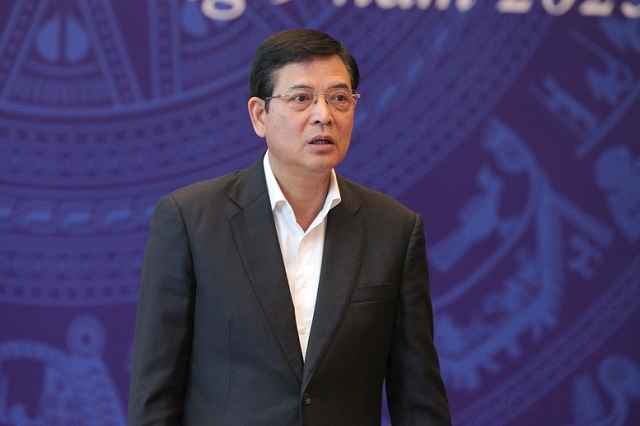
Deputy Minister of Construction Bui Xuan Dung clarified and addressed feedback. Photo: Construction Newspaper
|
Reducing Administrative Procedures, Enhancing Decentralization
After listening to workshop feedback, Deputy Minister of Construction Bui Xuan Dung clarified and addressed the input.
Deputy Minister Dung emphasized that the draft Law is based on fully absorbing Central Committee resolutions and aligns with administrative procedure reform and business environment improvement directives.
To innovate investment construction management methods and enhance efficiency, the draft proposes classifying projects not by capital source, as in the current Law, but by investment form (public, PPP, business).
Regarding project management forms, the current Law specifies four: specialized project management boards, regional boards, single-project boards, and direct investor management. To increase flexibility and align with the two-tier government restructuring, the draft specifies two forms: Investment Construction Management Boards and Investor-led Project Management.
The draft reduces and simplifies administrative procedures and business conditions, allowing investors to decide on using basic design, FEED design, or technical design in feasibility reports based on project requirements.
Approval content is streamlined, with construction authorities focusing on safety, fire prevention, standards compliance, and planning alignment, while other aspects are handled by investors.
For design implementation after basic design, construction authorities will not approve it, leaving it to investors. The roles and responsibilities of design consultants and reviewers are strengthened.
For construction permits, projects with approved feasibility reports are exempt. Remaining projects, mainly small-scale, will receive online permits within a maximum of 7 days.
Deputy Minister Dung affirmed that the draft clearly delineates state management responsibilities and those of construction participants. It avoids specifying administrative procedure authorities, delegating detailed regulations to the Government to thoroughly decentralize to local authorities, retaining central control only for inter-provincial, inter-regional, and national issues; national defense, security, and sovereignty; highly technical or nationally significant projects.
– 08:57 27/09/2025
Expanding the Scope of Construction Permit Exemptions
The revised Construction Law draft expands the scope of exemptions from construction permits. For small-scale projects and individual housing in areas without detailed planning, while permits are still required, the process will be streamlined through a single online portal, making it simpler than before.
Xiaomi Delivers on Promise: Mijia Refrigerators, Washing Machines, and Air Conditioners Officially Launched in Vietnam
Xiaomi has officially launched its Mijia smart home appliance line in Vietnam, featuring air conditioners, refrigerators, washer-dryers, and air purifiers. This move addresses the growing consumer demand for diverse smart home solutions and strengthens Xiaomi’s ecosystem of intelligent household products.
Vietnam’s Fruit and Vegetable Exports Reach Unprecedented High
In September, Vietnam’s fruit and vegetable industry achieved a historic milestone, with export turnover reaching nearly $1.3 billion—the highest level ever recorded. Durian exports, the king of fruits, are leading the charge, propelling the sector toward a new record and paving the way to potentially hit the $8 billion mark this year.
Subaru BRZ: A Bargain at Over $60,000 in Vietnam Compared to Other Sports Cars
In the U.S., the Subaru BRZ carries a significantly higher price tag than the Ford Mustang. However, in Vietnam, this sports car is officially priced at just 1.459 billion VND. When compared to the privately imported American sports cars that can cost nearly 3 billion VND, it becomes clear that owning a BRZ in Vietnam is actually quite affordable.






